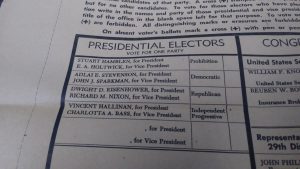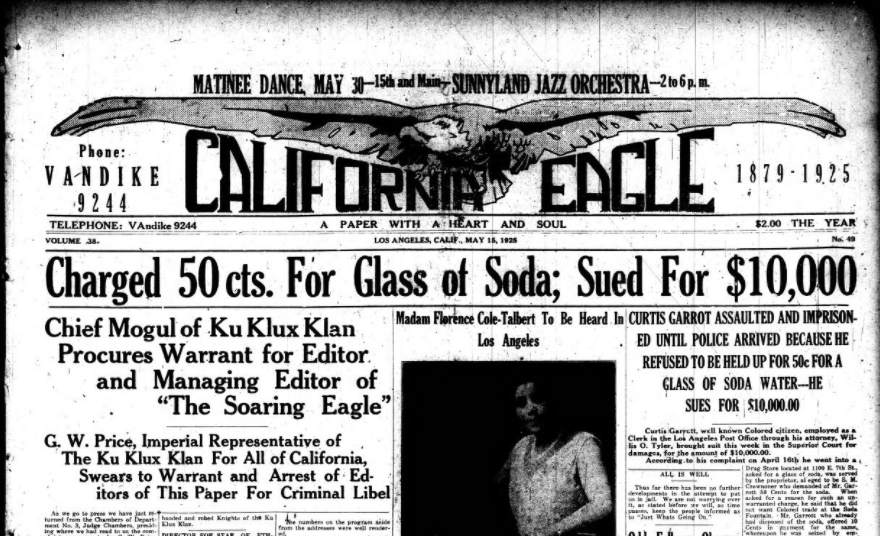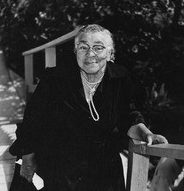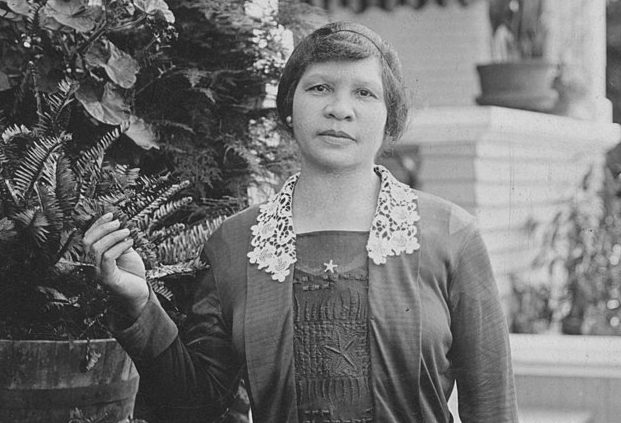“For the first time in the history of this nation a political party has chosen a Negro woman for the second highest office in the land,” Charlotta Spears Bass says in her acceptance speech on March 30, 1952.

The long-time publisher of the California Eagle is the U.S. vice presidential candidate on the Progressive Party ticket she shares with San Francisco lawyer Vincent Hallinan.
“Win or lose, we win by raising the issues,” is the campaign’s slogan.
Hallinan and Bass face Democrats Adlai Stevenson and John Sparkman and Republicans Dwight D. Eisenhower and Richard Nixon, who win.

In 1910, Charlotta Spears, 36, has been selling subscriptions for a Black-owned Rhode Island newspaper for a decade. Health concerns cause her to move to Southern California where she finds work at another African American newspaper, the California Owl. When its publisher, John Neimore dies in 1912, Bass takes ownership, renaming it the California Eagle. She is the first African American woman to publish a newspaper.
She hires Joseph Bass, founder of the Topeka Call, as editor and focuses the paper on social and political issues of concern to African Americans like school segregation and unfair labor and housing practices. i. By 1925, the Eagle has a readership of 60,000 and is the largest Black-owned paper in the state. The paper also features news from far flung communities, from Needles to Sacramento. The paper’s motto: “We cover California like the ocean breeze.”
Under Bass’ leadership, the paper also champions civil liberties and women’s rights. Her civil rights advocacy leads to her life being threatened.

In 1925, the Ku Klux Klan tries unsuccessfully to sue the Eagle for defamation of character, after the newspaper publishes a Klan propaganda piece left anonymously at Black residences in the middle of the night.
Bass is politically active running for both Los Angeles City Council and Congress as well as vice president.
She takes part in numerous civil rights organizations, including Marcus Garvey’s Universal Negro Improvement Association and the NAACP. She founds the Industrial Business Council to promote Black-owned businesses and the Home Protective Association to fight racist housing covenants.

“In serving one’s fellow man one serves himself best,” she writes.
During the McCarthy era of the 1950s, Bass’ leftward political leanings catch the attention of the FBI, which puts her under surveillance. She is accused of being a Communist and is called before the California Legislature’s Joint Fact-Finding Committee on Un-American Activities.
In 1960 Bass publishes her autobiography, Forty Years: Memoirs from the Pages of a Newspaper. She dies in Los Angeles in 1969.
